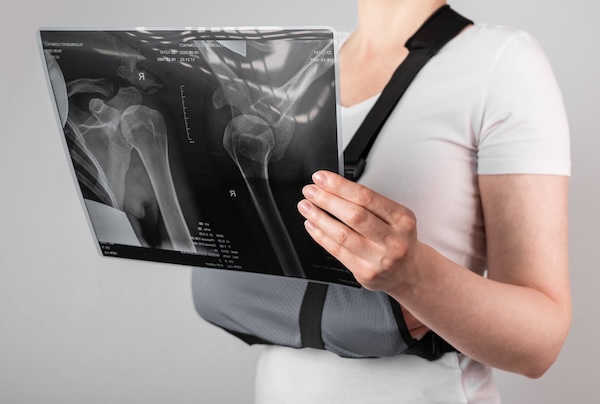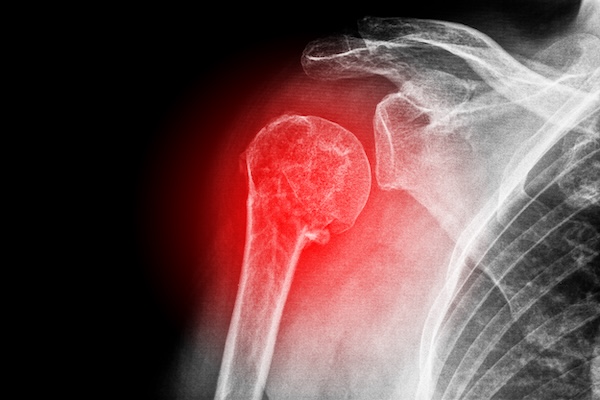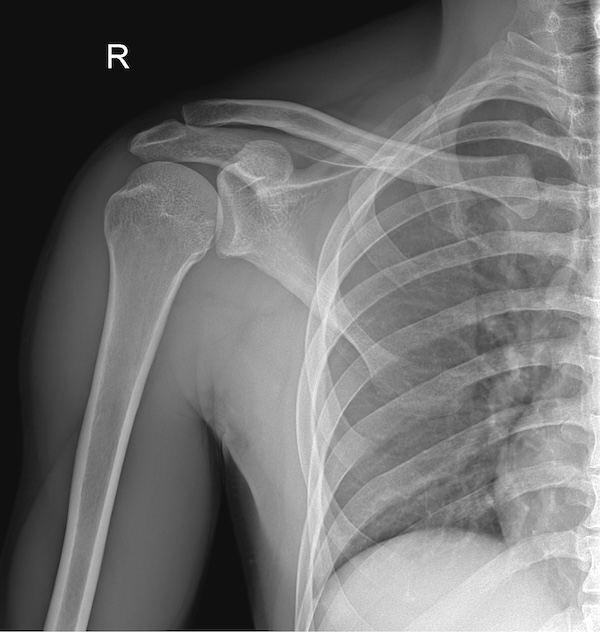Dislocated Shoulder Injuries: Causes, Treatment, and Recovery
A dislocated shoulder occurs when the upper arm bone (humerus) pops out of the shoulder socket (glenoid), causing significant pain and instability. As the most mobile joint in the body, the shoulder is particularly vulnerable to dislocation, especially during high-impact activities. Understanding the causes, treatment options, and recovery process for a dislocated shoulder can help patients take proactive steps toward healing and avoiding future injuries.
What is a Dislocated Shoulder?
A dislocated shoulder refers to the separation of the humerus from the glenoid socket, often resulting from a fall, accident, or direct blow to the shoulder. There are different types of shoulder dislocations, including anterior dislocation (the most common type, where the humerus moves forward out of the socket), posterior dislocation, and inferior dislocation. Symptoms include intense shoulder pain, swelling, visible deformity, and the inability to move the shoulder joint. If not treated properly, a dislocated shoulder can lead to long-term instability and recurring dislocations.
Common Causes of Dislocated Shoulder Injuries
Dislocated shoulders can occur due to a variety of factors, including:
- Traumatic injuries: Falls, car accidents, or sports injuries involving contact or collisions often result in shoulder dislocations.
- Sports participation: Athletes in high-impact sports like football, basketball, rugby, and skiing are particularly at risk of shoulder dislocation.
- Overuse and repetitive motion: Repeated overhead movements, common in sports like tennis or swimming, can weaken shoulder stability over time, making dislocation more likely.
Symptoms of a Dislocated Shoulder
A dislocated shoulder typically presents with the following symptoms:
- Severe shoulder pain and discomfort
- Swelling and bruising around the joint
- A noticeable deformity in the shoulder, often appearing as though the arm is out of place
- Limited range of motion, with the inability to move the shoulder normally
- Numbness or tingling in the arm or hand due to nerve compression
Diagnosing a Dislocated Shoulder
At Georgia Spine & Orthopaedics, we use advanced diagnostic tools such as X-rays, MRI, and CT scans to confirm the extent of the dislocation and assess any additional damage to surrounding structures like ligaments, tendons, or the rotator cuff. Proper diagnosis ensures that your treatment plan is comprehensive and addresses all aspects of your shoulder injury.
Treatment Options for a Dislocated Shoulder
The treatment of a dislocated shoulder depends on the severity and complexity of the injury:
- Closed Reduction: In most cases, a healthcare provider will perform a closed reduction, where the humerus is gently guided back into the socket. This procedure may be done with the help of pain relief medications or sedatives to minimize discomfort.
- Immobilization: After the shoulder is repositioned, it’s essential to keep it immobilized using a sling or shoulder brace for several weeks. Immobilization allows the damaged tissues to heal and prevents further instability.
- Physical Therapy and Rehabilitation: Once initial healing has occurred, physical therapy is crucial to restore strength, flexibility, and stability to the shoulder. Our rehabilitation programs include exercises to strengthen the rotator cuff muscles, improve range of motion, and prevent future dislocations. Gradual, progressive exercises are key to regaining full shoulder function.
- Surgical Intervention: In cases of recurring shoulder dislocations or severe ligament damage, shoulder surgery may be necessary to repair torn tissues and restore stability to the joint. At Georgia Spine & Orthopaedics, our orthopedic surgeons are skilled in performing minimally invasive shoulder surgeries, ensuring quicker recovery times and fewer complications.
Recovery from a Dislocated Shoulder
The recovery process for a dislocated shoulder depends on the severity of the injury and whether surgery was required. Most patients can expect to wear a sling for a few weeks, followed by physical therapy to regain strength and range of motion. Full recovery may take anywhere from 6 to 12 weeks, with athletes and individuals in physically demanding jobs often needing additional rehabilitation to ensure the shoulder is strong enough to return to activity safely.
Comprehensive Dislocated Shoulder Treatment at Georgia Spine & Orthopaedics
At Georgia Spine & Orthopaedics, we provide specialized and comprehensive care for patients suffering from dislocated shoulder injuries. We combine advanced diagnostic techniques, non-invasive treatment options, and personalized recovery plans to ensure that each patient receives optimal care tailored to their specific condition.
Our team of experienced orthopedic specialists understands the complexities of shoulder dislocations, from mild dislocations to severe cases involving ligament damage or joint instability, and we are equipped with the latest treatment modalities to facilitate a full and safe recovery.
Advanced Diagnostic Tools for Accurate Shoulder Dislocation Assessment
Proper diagnosis is the first and most crucial step in effectively treating a dislocated shoulder, and at Georgia Spine & Orthopaedics, we use state-of-the-art diagnostic tools to assess the severity of your injury. Our process begins with a comprehensive physical examination of the shoulder, carefully evaluating your range of motion, pain levels, and any visible deformities in the shoulder joint. To further confirm the nature and extent of the dislocation, we use advanced imaging technologies such as X-rays, MRI scans, and CT scans.
These tests help us identify associated injuries, such as fractures, ligament tears, or damage to the rotator cuff, ensuring we develop a precise and individualized treatment plan that addresses every aspect of your injury.
Personalized Non-Surgical Treatment for Shoulder Dislocations
Many dislocated shoulders can be treated without surgery, and at Georgia Spine & Orthopaedics, we emphasize non-invasive treatments whenever possible. The first step in treating a dislocated shoulder typically involves a procedure known as closed reduction, where the shoulder joint is manually repositioned back into place by a trained medical professional. This process is often supported by pain relief medication or light sedation to ensure the procedure is as comfortable as possible.
After the shoulder is relocated, we often recommend immobilization with a sling or shoulder brace for several weeks to allow the joint to heal and prevent further injury. During this time, we prescribe NSAIDs (nonsteroidal anti-inflammatory drugs) such as ibuprofen or naproxen to manage pain and reduce inflammation. For patients with persistent inflammation or more severe discomfort, corticosteroid injections may be administered to promote faster healing and ease pain.
Physical Therapy and Rehabilitation for Shoulder Recovery
Rehabilitation is an essential component of recovering from a dislocated shoulder. At Georgia Spine & Orthopaedics, our experienced physical therapists work closely with you to develop a personalized rehabilitation program aimed at restoring strength, flexibility, and stability to the shoulder joint. This helps prevent future dislocations and reduces the risk of chronic instability.
Our rehab programs typically include exercises designed to strengthen the rotator cuff muscles and improve shoulder mobility. These include range of motion exercises, isometric shoulder strengthening, and resistance band training to rebuild muscle tone and stabilize the joint. As you progress, we carefully monitor your recovery, ensuring that you regain full function of your shoulder without overstraining the joint.
Surgical Options for Severe Shoulder Dislocations
In cases of recurrent shoulder dislocations or severe ligament damage that cannot be fully addressed through non-surgical means, surgery may be required to restore stability to the shoulder. Our team of highly skilled orthopedic surgeons at Georgia Spine & Orthopaedics is proficient in performing minimally invasive shoulder surgeries, which focus on repairing torn ligaments or tendons while minimizing tissue damage and reducing recovery time. Surgical techniques such as arthroscopic surgery allow for more precise repairs with smaller incisions, resulting in less pain and faster healing.
Post-surgery, patients receive detailed rehabilitation plans designed to promote healing, restore function, and prevent future dislocations.
Comprehensive Recovery Support and Follow-Up Care
Recovery from a dislocated shoulder extends beyond the initial treatment, and Georgia Spine & Orthopaedics offers comprehensive follow-up care to monitor your progress and ensure that you achieve a full recovery. We guide you through each stage of rehabilitation, making necessary adjustments to your treatment plan to accommodate your healing process.
Our specialists also emphasize patient education, teaching you how to protect your shoulder during everyday activities and reduce the risk of re-injury. Whether through strengthening exercises, proper lifting techniques, or using supportive braces during sports, we equip you with the knowledge and resources necessary to maintain shoulder health in the long term.
FAQs About Dislocated Shoulder Injuries
1. What should I do immediately after dislocating my shoulder?
If you suspect you’ve suffered a dislocated shoulder, it’s crucial to take immediate action to prevent further damage to the shoulder joint. First and foremost, do not attempt to relocate the shoulder on your own, as improper movement can cause additional injury to the ligaments, tendons, or even the nerves surrounding the joint. Instead, immobilize the shoulder by using a sling or shoulder brace if available, ensuring that the joint remains stable.
Apply ice packs to the area for 15-20 minutes every hour to help reduce swelling, minimize inflammation, and relieve pain. Seeking medical attention as soon as possible is essential, as timely treatment can prevent complications such as nerve damage, chronic instability, or a torn rotator cuff. Your doctor may perform imaging tests like X-rays or MRI scans to confirm the severity of the dislocation and any accompanying injuries, ensuring a comprehensive treatment plan.
2. How can I prevent future shoulder dislocations?
Preventing future shoulder dislocations largely depends on strengthening the muscles that support the shoulder joint and improving the stability of the joint itself. After experiencing a shoulder dislocation, engaging in physical therapy is critical for long-term recovery. Rotator cuff strengthening exercises, scapular stabilization techniques, and range of motion exercises are all designed to build strength in the shoulder muscles and reduce the likelihood of future injuries.
Additionally, wearing protective gear during high-impact sports, such as shoulder pads or braces, can help minimize the risk of further injury. Athletes, particularly those involved in sports like football, basketball, or skiing, should focus on maintaining proper form during overhead movements to prevent undue stress on the shoulder joint. By combining strength training, flexibility exercises, and proactive protective measures, you can significantly lower the chances of recurring shoulder dislocations.
3. Will I need surgery for a dislocated shoulder?
In most cases, a dislocated shoulder can be successfully treated with non-surgical methods such as closed reduction, where the joint is manually repositioned, followed by immobilization and physical therapy. However, surgery may become necessary if you experience recurrent dislocations or if the initial injury caused significant ligament damage, torn tendons, or other structural damage to the shoulder joint.
Surgical procedures, such as arthroscopic surgery or open shoulder stabilization, aim to repair the damaged tissues and restore joint stability, reducing the risk of future dislocations. If surgery is required, your orthopedic surgeon will develop a personalized treatment plan tailored to your specific needs. Post-surgical recovery typically involves a period of immobilization followed by intensive rehabilitation to rebuild strength and mobility in the shoulder.
Whether you require surgery will depend on the severity of your injury and your medical history, and your doctor will guide you through the decision-making process.
4. How long does it take to recover from a dislocated shoulder?
The recovery time for a dislocated shoulder varies depending on the severity of the injury and the type of treatment you receive. For non-surgical cases, recovery typically takes anywhere from 6 to 12 weeks, during which time the shoulder will be immobilized in a sling for a few weeks before beginning physical therapy. During rehab, patients focus on restoring range of motion, improving shoulder strength, and ensuring long-term joint stability.
In cases where surgery is required, recovery can extend up to several months. The healing process often involves an initial period of immobilization, followed by a carefully monitored rehabilitation program to restore full functionality. Athletes and individuals with physically demanding jobs may require additional time and rehabilitation to regain the strength necessary to return to their normal activities. Patience and adherence to your rehabilitation program are key to a successful recovery and reducing the risk of future dislocations.
5. What are the risks of not treating a dislocated shoulder properly?
Failing to properly treat a dislocated shoulder can lead to several long-term complications, including chronic shoulder instability, where the joint is more prone to dislocating repeatedly. Untreated dislocations can also cause persistent pain, limited mobility, and damage to the surrounding ligaments, tendons, and nerves, potentially leading to permanent weakness in the shoulder. Over time, this can severely limit your ability to perform everyday tasks or participate in physical activities.
In addition, repeated dislocations increase the likelihood of developing degenerative conditions such as arthritis in the shoulder joint. Seeking proper medical treatment after a dislocation, which may involve immobilization, physical therapy, or surgery, ensures that the shoulder heals correctly and reduces the risk of these complications. Prompt and appropriate care gives you the best chance for a full recovery and helps protect your shoulder’s long-term health and stability.
Get Expert Care for Dislocated Shoulder Injuries at Georgia Spine & Orthopaedics
At Georgia Spine & Orthopaedics, we are committed to providing the highest level of care for patients suffering from shoulder injuries, including dislocated shoulders. Our team of highly skilled orthopedic specialists is dedicated to offering a comprehensive approach that covers everything from the initial diagnosis and advanced imaging to a personalized treatment plan and rehabilitation.
We focus on not only relieving your immediate pain but also ensuring that you regain full strength, mobility, and long-term stability in your shoulder. Whether your injury requires non-surgical treatment, physical therapy, or in more complex cases, surgical intervention, we have the expertise and resources to help you recover fully and effectively.
Don’t let a dislocated shoulder disrupt your daily life or hold you back from participating in the activities you love. Taking the first step toward recovery is crucial in preventing future dislocations and avoiding potential long-term complications, such as chronic instability or recurrent shoulder issues. By choosing Georgia Spine & Orthopaedics, you’re not just getting expert medical care—you’re gaining a team of professionals dedicated to your total recovery.
We will support you through every stage of the healing process, from pain management to strength restoration, ensuring that your shoulder returns to full functionality as quickly as possible.
If you’re dealing with a dislocated shoulder, there’s no need to continue living in pain or discomfort. Take control of your recovery today by scheduling an appointment with Georgia Spine & Orthopaedics. Our compassionate team will work with you to create a treatment plan tailored specifically to your needs, helping you get back to the activities you enjoy with a stronger, more stable shoulder.
Let us guide you on the path to recovery with expert orthopedic care you can trust—contact us now at 678-929-4494 to start your journey toward long-term health and wellness.









